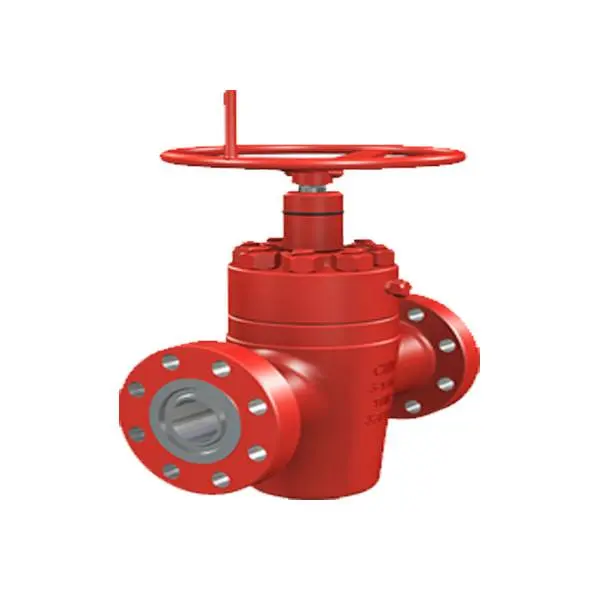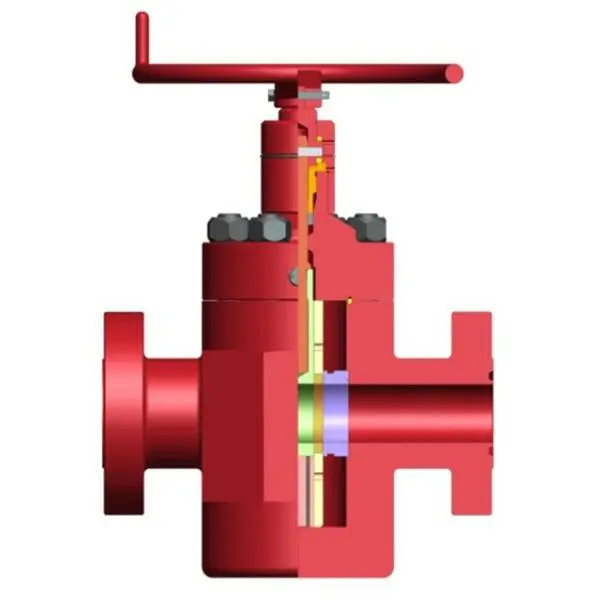Slab valves are essential components in various industrial processes, especially those that involve controlling the flow of liquids or gases. These valves are used in many different applications, including oil and gas production, chemical processing, and water treatment. In this article, we will explore what slab valves are, how they work, and their different types.
What is a slab valve?
A slab valve is a type of valve that consists of a flat or slab-shaped gate that slides up and down to control the flow of liquid or gas through a pipeline. The gate is usually made of metal and is operated by an actuator, which can be manual, hydraulic, or pneumatic. When the gate is in the closed position, it blocks the flow of fluid, and when it is open, it allows fluid to pass through.


How does a slab valve work?
The working principle of a slab valve is relatively simple. When the actuator is activated, it moves the gate up or down, depending on whether the valve needs to be opened or closed. In the closed position, the gate seals against the valve body, creating a tight seal that prevents fluid from flowing through the pipeline. When the valve needs to be opened, the actuator moves the gate out of the way, allowing fluid to flow freely through the pipeline.
Slab valves are typically used in applications where a large volume of fluid needs to be moved quickly. They are particularly useful in applications where the fluid is abrasive or corrosive, as the gate can be made of materials that are resistant to wear and tear.
Types of slab valves
There are several different types of slab valves, each with its own unique design and operating characteristics. Some of the most common types include:
Rising stem slab valve: This type of slab valve has a gate that moves up and down along a threaded stem. As the stem is rotated, the gate moves up or down, opening or closing the valve.
Non-rising stem slab valve: This type of valve has a gate that moves up and down along a non-threaded stem. Instead of rotating the stem, the actuator moves the gate up or down directly, opening or closing the valve.
Knife gate valve: This type of valve has a sharp-edged gate that cuts through the fluid as it moves up and down. Knife gate valves are typically used in applications where the fluid contains solid particles, such as in mining or wastewater treatment.
Sliding gate valve: This type of valve has a gate that slides back and forth rather than up and down. Sliding gate valves are typically used in applications where a tight seal is required, such as in gas pipelines.
Wedge gate valve: This type of valve has a gate that is shaped like a wedge. As the gate is lowered, it presses against the valve seat, creating a tight seal that prevents fluid from flowing through.
Choosing the right slab valve for your application
When choosing a slab valve for your application, there are several factors to consider, including the type of fluid being transported, the pressure and temperature of the fluid, and the flow rate. It is essential to choose a valve that is made from materials that are compatible with the fluid being transported, as well as a valve that can handle the pressure and temperature of the fluid.
In addition, it is crucial to choose a valve that is properly sized for your application. Choosing a valve that is too small can result in excessive pressure drops and flow restrictions, while choosing a valve that is too large can result in increased costs and reduced efficiency.
Conclusion
Slab valves are essential components in many industrial processes, providing precise control over the flow of fluids through pipelines. With their simple design and reliable operation, slab valves are ideal for use in a wide range of applications, from oil and gas production to
chemical processing and water treatment. By understanding the different types of slab valves and the factors to consider when choosing the right valve for your application, you can ensure that your process runs smoothly and efficiently.
It is also essential to properly maintain your slab valves to ensure their continued performance and reliability. Regular inspections and maintenance can help identify any potential issues before they become significant problems, preventing downtime and costly repairs.
In conclusion, slab valves are an integral part of many industrial processes, providing reliable and precise control over the flow of fluids. By choosing the right valve for your application and properly maintaining it, you can ensure that your process runs smoothly and efficiently, maximizing productivity and minimizing downtime.
Post time: May-06-2023
